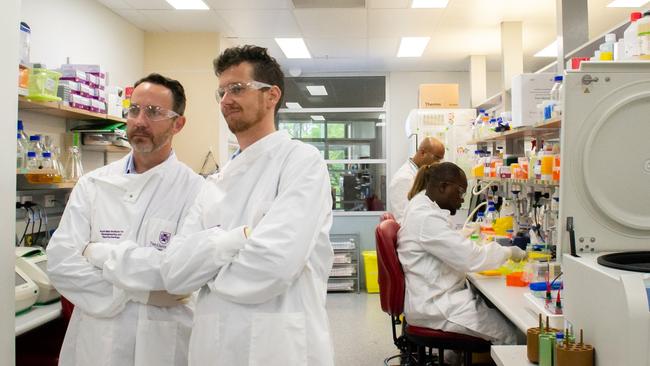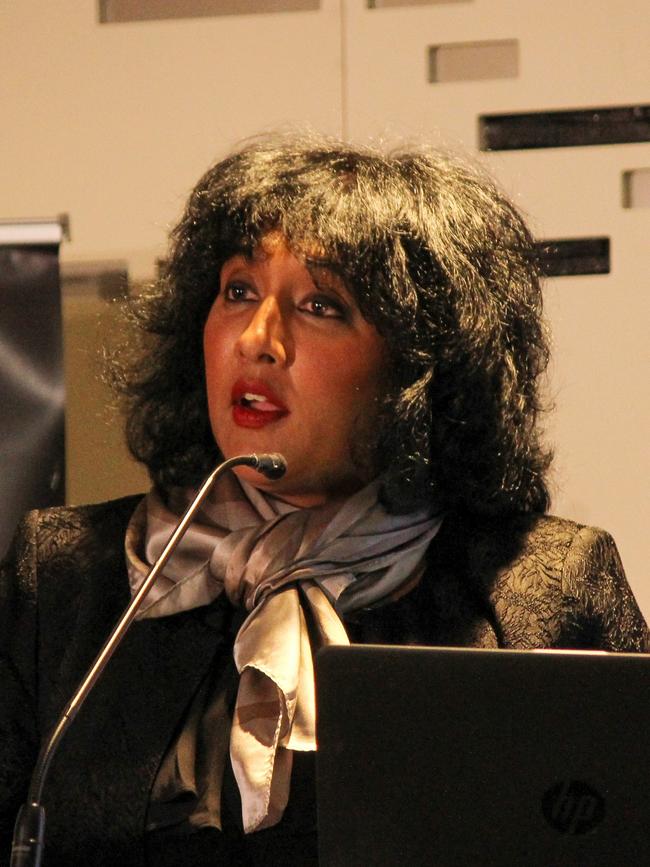Coronavirus: Science is the key to dealing with the virus crisis

If you don’t yet know these names, and those of hundreds of other world-leading Australian scientists like them, we all should. We owe them all a great debt.
They are just some of the many frontline experts keeping us safe as public health officials seek to contain the spread of coronavirus.
They — and so many others like them — have deployed magnificently to help in the fight against this virus.
And in this crucial work, each of them draws on a lifetime of study, research, and commitment to the public good.
Dr Keith Chappell and his team at the University of Queensland are racing to develop and test a vaccine for COVID-19 in record time.
Professor Jodie McVernon and colleagues at the Peter Doherty Institute at the University of Melbourne have developed powerful mathematical and computational models, which helps authorities to recommend interventions in proportion to risk.
Professor Ross Andrews has helped Queensland health authorities manage their public health response. He also heads a team of researchers and students from the Australian National University who are embedded in the incident control rooms for each chief medical officer around the nation.
And Professor Raina MacIntyre of the Kirby Institute at UNSW Sydney has been one of Australia’s chief public explainers, sharing her research and the epidemiological evidence with clear, calm, compelling authority to millions of Australians in media interviews.

The fact that they are ready for this fight reminds us powerfully that investing in a highly-skilled expert scientific workforce must always be a national priority.
In moments of great challenge like these, such expertise can’t be deployed if it doesn’t already exist. It is the product of decades of investment in study, research and technology.
Building our national scientific and technology workforce is as great a national imperative as other forms of national defence because lives depend on this expertise being ready and deployable in times like these.
When we think about the biggest challenges that lie ahead for our nation and the world, science and technology will be absolutely crucial to our ability to find smart solutions.
To outwit the new threats we face, and so many more like them, science and technology are not just part of the answer. They must be front and centre in the race for answers.
I am deeply honoured to begin my new role this week as a passionate voice for Australian science and technology.
As CEO of Science and Technology Australia, I will work tirelessly to raise the profile of our scientific expertise, and bring that expertise more deeply into the policymaking process.
I will champion our nation’s frontline experts in these fields, drawn from a vast diversity of backgrounds, and help us ensure we honour their contributions.
And if there is one clear and overriding message I want to impart to policymakers and Parliamentarians, it is this: science offers solutions.
You’ll hear more from STA in the months ahead on this theme. We will bring the expertise of our membership – the nation’s 80,000 scientists and people working in cutting-edge technology industries – further into public view.
And you’ll see, hear and grasp why we need these scientific heroes and heroines in our midst.
We will work across the Parliamentary aisle to do so.
I look forward to working with Science and Industry Minister Karen Andrews, Industry, Science and Research shadow minister Brendan O’Connor, Education Minister Dan Tehan, shadow Education Minister Tanya Plibersek, Greens science and research spokesperson Senator Janet Rice, Greens education spokesperson Senator Mehreen Faruqi, Centre Alliance’s Industry, Science and Innovation spokesperson Senator Rex Patrick, and all MPs and senators.
And I look forward to working closely with Australia’s Chief Scientist, Dr Alan Finkel and his team.
The leadership of every one of them will be crucial.
We must see science and technology as long-run investments that deliver vast returns to the nation in times of crisis. That patient capital brings returns many times over.
The money we invest in our junior scientists and technologists today in school and extra-curricular programs to seed ambitions for careers in STEM (science, technology engineering and maths), will pay dividends when they go on to become our frontline experts in the decades ahead.
When these budding scientists and technologists venture into their future careers, they must be supported by ongoing investment in funding through the Australian Research Council, the National Health and Medical Research Council, and the Medical Research Future Fund.
And the money we invest in more STEM graduates, and research careers, will set people on a path to become the next Keith Chappell, Raina MacIntye, Ross Andrews or Jodie McVernon — and so many more brilliant Australians like them.
And what a return on investment that will be.
Misha Schubert is chief executive officer of Science and Technology Australia.



Dr Keith Chappell, Professor Jodie McVernon, Professor Ross Andrews and Professor Raina MacIntyre.